
One of these economic alchemists may likely assume the job of Ben Bernanke. If so, pray for us.
Last week, President Obama indicated that Federal Reserve Chairman Ben Bernanke will likely step down in January when his term ends. After taking office in 2006 under then-President George W. Bush, Bernanke has facilitated the greatest economic transfer of wealth from America's grandchildren to banks and foreign nations in the name of sustaining the Keynesian vision of the economic stimulus.
But with Bernanke's departure, it is unclear just who will take the reins of the Federal Reserve, and what policies they will seek to maintain or discard five years after the height of the financial crisis.
Here are the five top contenders that we expect to make Obama's shortlist for next Fed Chairman. And each one of them should give us a great deal of concern due to their commitment to the same tired economic theory and policies that they are convinced will eventually work if we just keep doubling down.
Fed Chairman 2014, Candidate One:
Timothy Geithner, MA, International Economics and East Asian studies, Johns Hopkins University
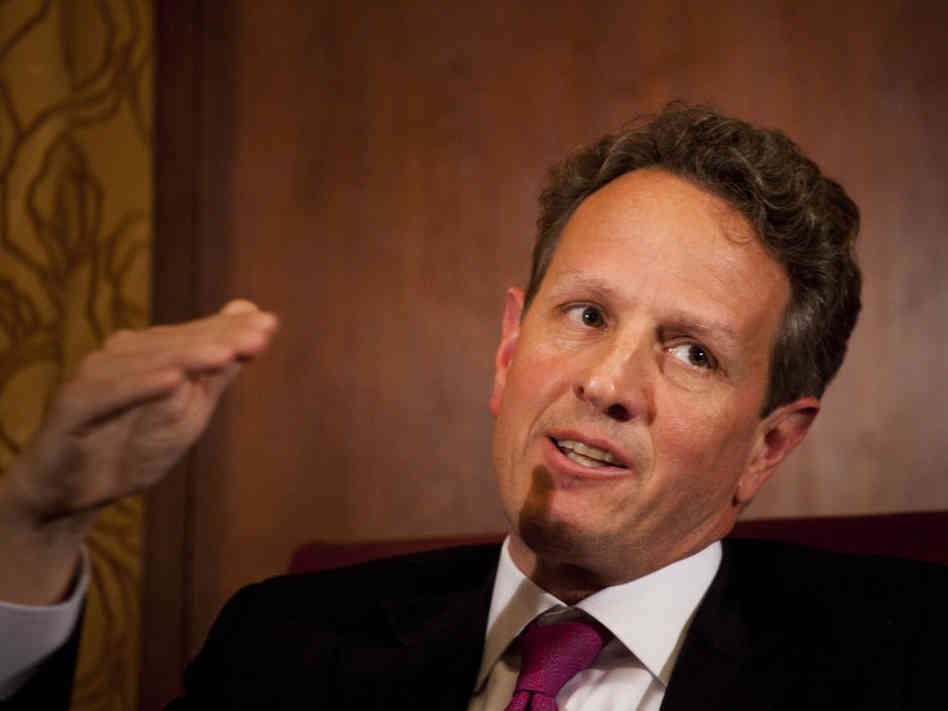
A 51-year-old finance wizard in a teenager's body, Timothy Geithner maintains a strong reputation for "punctuating his sentences" with four-letter words. Geithner provides five solid years of confounding statements in the face of reality after overseeing the Troubled Asset Relief Program, which bailed out Wall Street, and left Middle America out in the cold.
Geithner is the only highly touted candidate who lacks a Ph.D., which means he doesn't have the academic training in economics of the other candidates. Of course, the last person who didn't have that level of training was G. William Miller, the chairman of Textron who headed the Fed under Jimmy Carter in 1978. Miller's term was marked by bouts of runaway inflation.
Geithner headed the New York Federal Reserve Bank during the financial crisis, a powerful regulatory position he chose to remain in rather than run Citigroup. He is a natural speaker who comes with several years of experience testifying before Congress, with a range of mistruths, misdirection, and stonewalling.
However, it is rumored that he is not seeking this job. Still, the President has placed a lot of trust in him as Treasury Secretary, which means he might not be able to turn the job down when the President is again confounded by his own economic policies.
Quote that Would Be a Deal Breaker in Any Other Job in America
If Geithner were confirmed as Federal Reserve Chairman, he should have to explain the following quote.
"You are right to say we're not coming before you today to say 'we have a definitive solution to that long-term problem.' What we do know is, we don't like yours."
This was Geithner's response during testimony in front of Congress regarding the administration's lack of a plan to reduce long-term debt obligations and to stave off debt-to-GDP ratios reaching levels that would potentially cripple the U.S. economy.
Just the sort of vision you need when dealing with long-term fiscal and monetary issues as Federal Reserve Chairman.
Fed Chairman 2014, Candidate Two:
Lawrence Summers, Ph.D., Harvard University
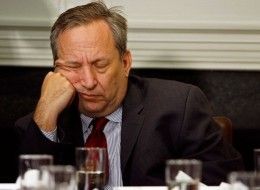
Larry Summers brings a whole new meaning to the words: Asleep at the switch.
Although Summers has never held a position at the Federal Reserve, he has more than two decades of firsthand experience leading the United States economy into perilous conditions, failing to meet promises in times of crisis, and facilitating the repeal of the Glass-Steagall Act. After a tenure as the Clinton administration Treasury Secretary, Summers became the president of Harvard University, from he later resigned after a number of controversies.
During his time at Harvard, in the years preceding the financial crisis, the school had derivative positions of more than $3.52 billion of its endowment funding. Attributed to Summers, the school would pay nearly $500 million in termination fees to investment banks to exit these position and another nearly $500 million over 30 years. In the end, Summers lost the school about $1.8 billion, according to reports.
Some historians also argue that Larry Summers is the original architect of the 2007 financial crisis, since he was so vital in the public denouncement of Brooksley Born following the 1997 financial crisis and near catastrophic (at the time) bailout of Long Term Capital Management. Born, who headed the CFTC at the time, called for the reigning in and regulation of financial derivatives. Summers, along with Alan Greenspan andformer Treasury Secretary Robert Rubin, ran Born out of Washington on a rail for merely suggesting regulation as a way to... you know... not blow up the international financial markets.
Quote that Would Be a Deal Breaker in Any Other Job in America
If Summers were confirmed as Federal Reserve Chairman, he should have to explain the following quote.
"The central irony of financial crisis is that while it is caused by too much confidence, too much borrowing and lending and too much spending, it can only be resolved with more confidence, more borrowing and lending, and more spending."
Translation: We need to continue the same insane economic policies in order to keep the music playing while the banks are able to keep this mirage of economic growth going. Pay no attention to the man behind the curtain...
If Larry Summers is given the keys to the American economy, do yourself a favor. Keep your eye on an empty chair, because eventually the music is going to stop, and you don't want to be the last person dancing.
Fed Chairman 2014, Candidate Three:
Janet Yellen, net Ph.D economics, Yale University 1971
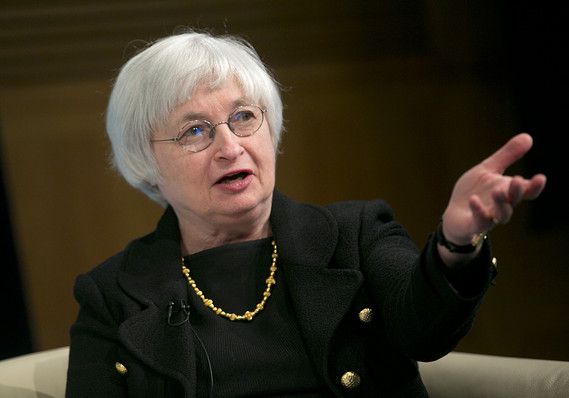
Janet Yellen is the Vice Chair of the Federal Reserve, and considered the favorite to replace Ben Bernanke. Many observers have labeled her a dove when it comes to policy, meaning that she is more concerned about unemployment than she is about inflation.
Such a policy could spook the markets, and possibly usher in those high levels of inflation. Many Keynesians have long believed that high unemployment and high inflation could not coexist, until the late 1970s debunked this myth.
With Yellen placing a massive amount of emphasis on driving aggregate demand, and trying to employ people, we could be going back to the days when people start digging holes in the ground while another team fills them back up in the pursuit of full employment. All we know is that Yellen is highly dedicated to further stimulus, borrowing, and capital injections until her ideology is proven right, no matter the cost.
Quote that Would Be a Deal Breaker in Any Other Job in America
If Yellen were confirmed as Federal Reserve Chairman, she should have to explain the following quote.
"At present, I view the balance of risks still calling for highly accommodative monetary policy to support a stronger recovery and more rapid growth in employment."
This was Yellen speaking not in March 2009 at the height of an international trade crisis. This was in March 2013, four years after a massive stimulus, three rounds of Quantitative Easing, and trillions in new debt over the past five years. Keep in mind, however, that we've had interest rates at record lows, printed more than $85 billion a month, spent $1.2 trillion in stimulus, and have more people on food stamps and government assistance than ever before.
Meanwhile, the Fed continues to destroy savings with low rates, while driving up Wall Street to record levels. Yellen argued that QE2 would generate up to three million jobs, which of course did not happen.
But if that doesn't convince you, here's an exit quote from Bob Janjuah, global head of tactical asset allocation for Japan'sNomura to CNBC: "A client said to me a few weeks ago that if Karl Marx was in charge of the world, he'd have Janet Yellen as his central bank governor."
Fed Chairman 2014, Candidate Four:
Christina Romer, Ph.D., Massachusetts Institute of Technology
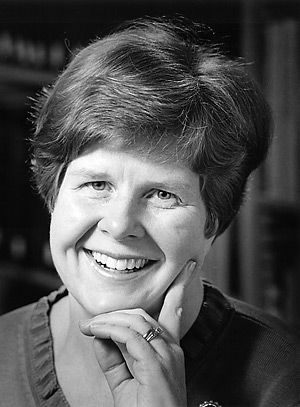
Christina Romer is a career academic and government bureaucrat with a questionable past when it comes to her ability to forecast economic outcomes. She has already misled on numerous occasions about the U.S. debt and the acceleration of financial problems plaguing our balance sheets: which means she's ideal to help maintain the status quo at the Fed.
Over the years, she has served as chairwoman of the Council of Economic Advisers. With Larry Summers, she helped development the $787 billion stimulus program that has provided little to any of the promised returns on investment to the U.S. economy.
In fact, since her widely publicized study and explanation that the stimulus package would reduce unemployment to 5%, she has returned to teaching at the University of California at Berkeley. Still, she remains a favorite to replace Bernanke given her commitment to Keynesian alchemy.
Quote that Would Be a Deal Breaker in Any Other Job in America
If Christina Romer were confirmed as Federal Reserve Chairman, she should have to explain the following quote.
"A well designed recovery plan will not only create numerous jobs, but also many jobs paying good wages and providing full-time employment."
Translation: What I meant to say was...

Romer was the architect of the Porkulus package of 2009 and said it would drive down unemployment to 5.1% by 2014. So she earned a standing ovation here at Money Morning for doing such a Cracker Jack job. Romer was only off by two full percentage points, and is saved by the fraudulent number crunching that the Bureau of Economic Analysis plays to remove Americans from the rolls of the unemployed. In reality, the true unemployment rate (U-6) remains north of 13%, which won't likely change under her guidance.
Perhaps, there's no way she could be more wrong regarding monetary policy than she was with the Stimulus Package. Though she may finally drive the spike into the heart of Keynesian economics once and for all when yet another massive spending boondoggle fails to address three systemic problems that are fueling serious long-term employment: a lack of incentives, too much regulation, and a steep drop in entrepreneurialism since 2007.
But then again, when it comes to Keynesians, the only thing that matters is aggregate demand, meaning that every American is just a cog in the machine of the Federal Reserve.
Fed Chairman 2014, Candidate Five:
Roger Ferguson, Ph.D., Economics, Harvard University
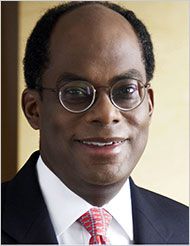
Roger Ferguson is the former Vice Chairman of theBoard of Governors of the Federal Reserve Systemfrom 1999 to 2006 and currently earns a few million a year as the President and Chief Executive Officer of the Teachers Insurance and Annuity Association - College Retirement Equities Fund (TIAA-CREF). He also serves as the president of the Economic Club of New York, a highly influential position among top economists in the nation.
Ferguson is the only candidate with an extensive period of his life spent in the private sector, but that was as a lawyer, of course.
In 2010, Ferguson said that it was time to get serious about "saving." But that is an interesting concept given that the Federal Reserve's policies have hammered retirement savings and effectively forced money into the stock market to favor equity holders.
One last note: his contract to run the TIAA-CREF had incentives in it that he could have earned $11 million per year from the outset in 2008. That contract can be seen here and is a fascinating read in contract law.
Quote that Would Be a Deal Breaker in Any Other Job in America
If Ferguson were confirmed as Federal Reserve Chairman, he should have to explain the following quote.
"Who are you again?"
Virtually every person in America would ask this if Roger Ferguson were confirmed.
Credit: Money Morning - Only the News You Can Profit From http://moneymorning.com/2013/06/26/different-fed-chairman-same-bad-monetary-policy-in-2014/

